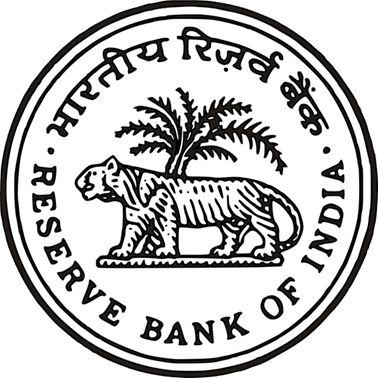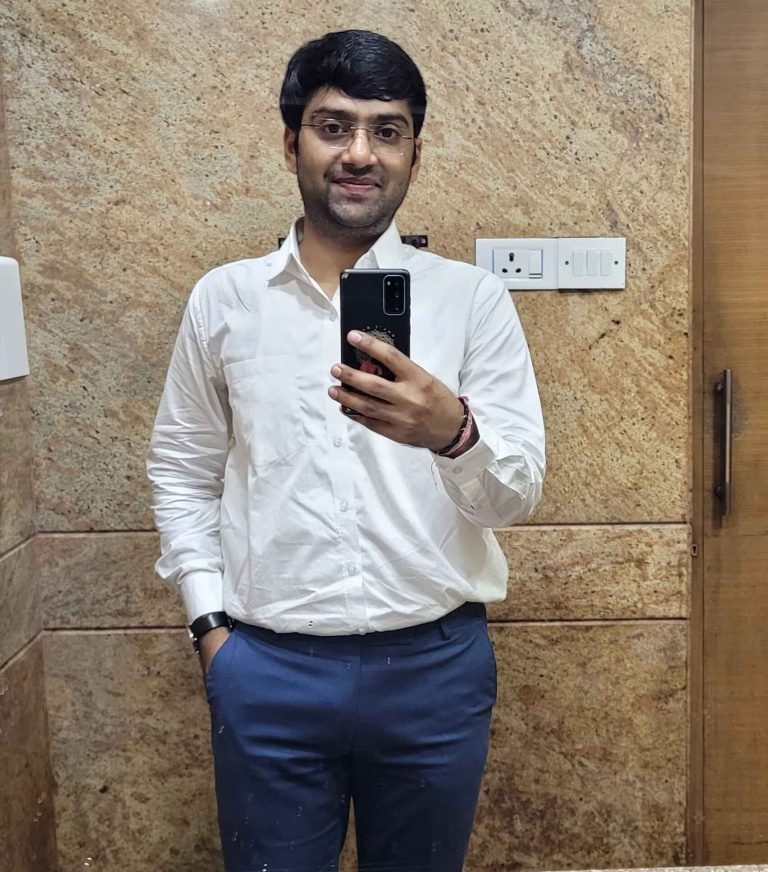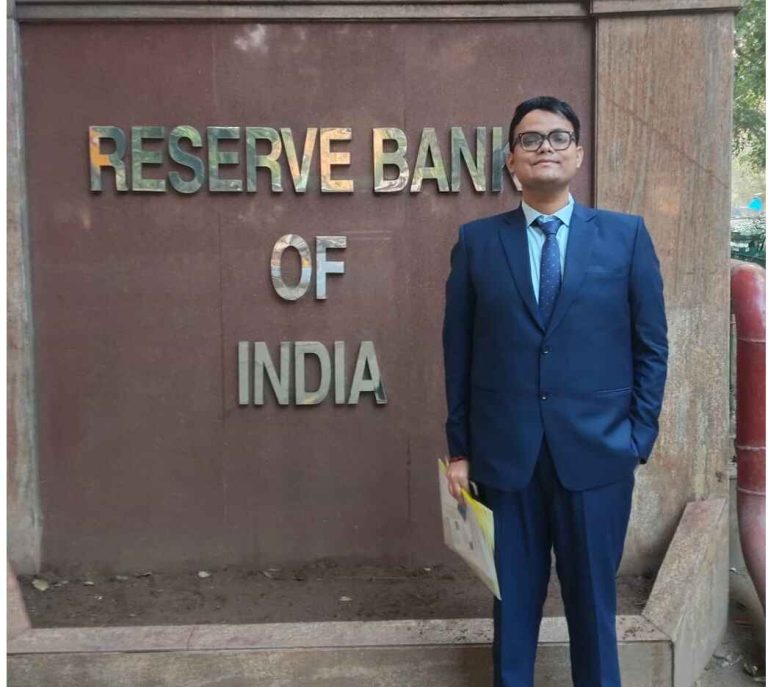(Time: Around 30 minutes; 6 panel members; 3 Females and 3 Males)
Chairman (reading my bio-data out loud): So your bachelors is from Janki devi memorial college, 71%, okay… and your masters from CDS. From where does CDS draw its affiliation, is it affiliated to JNU?
- (Now I had read all about this from my institute’s website, that it is affiliated to ICSSR and its degree is recognized by JNU)
- Me: No sir, its degree is recognized by JNU…
C (cutting me in between): No, the degree is to be recognized by UGC. Any institute has to be affiliated to some university. The university is no one to recognize a degree.
- Me: Sir with regard to its affiliation, it is affiliated to ICSSR…
C: Indian Council of Social Science Research? No again, that is not a university. What does your MA degree say on the top?
- Me: sir the degree is given out by JNU and on the top it’s written Jawaharlal Nehru University.
C: so it simply means that the Centre is affiliated to JNU only.
- (During all this, of course I could not go on trying to convince the chairman. All I did was listen to him and nod along, kept saying ok sir. Also, sometimes, uncomfortable situations may be intentionally created in the beginning by the panel. It’s important that you don’t get nervous in such situations. I kept my composure, nodding along, trying to show I’m respectful to the chairman.)
C: you’ve also worked as Asst. Prof in Hansraj, ok. You’ve had 6 years of training in Indian classical music. So what do you sing? I’m supposing training in vocal?
- Me: yes sir it was training in vocal. As a hobby I like to sing Bollywood songs, light classical also. As part of my training, I learned raags, variations of it like thumri, khayal, etc.
C: hmm that’s interesting. You must be aware of the kind of work done in DEPR. What work is done in there?
- Me: sir DEPR is the knowledge centre for macroeconomic research in RBI. It conducts regular studies on the state of the economy, publishes various reports and working papers related to macroeconomic issues, provides research inputs for monetary policy formulation and overall macroeconomic management of the economy…
C (cutting in between): ok so you have a fairly good idea about the work in DEPR. Which area specifically would you want to work in?
- Me: sir if given a choice, I would want to work in monetary policy dept. Studies related to growth- inflation dynamics, money supply, etc. are something I find interesting.
C (jokingly said): everyone wants to work in monetary policy department in RBI. Even the General candidates who don’t have degrees in economics want to work in MPD.
- (all members laughing at this. I too smiled)
C: no but other than that, where do you want to work?
- Me: sir other than that, external sector and forex reserve management is also an area I find v interesting.
C: ok good. You wrote a paper on Food inflation in India: major factors responsible (reading from my bio). What is this, we want to know more about this.
- Me: sir over the years, particularly over last 4-5 decades, overall inflation in India has been most dominantly influenced by food inflation. So the objective of my paper was to see what factors influence food inflation particularly, and that have stayed even till now over this long-term horizon.
C: so what were the factors responsible?
- Me: sir in the long run crude oil prices turned out to be most dominant factor…
C (cutting me in between): but we see that in India’s agriculture sector food prices very much depend on vagaries of monsoon. Did you take that into account in your study?
- Me: yes sir, in the study also it was captured, that in short run rainfall is the most important factor behind food inflation. But over long run, crude oil prices turned out to be most influential factor.
C: ok. You’ve also written a paper on trade and wage inequality: impact on public good provisioning (again reading from my bio). I’m not able to understand the link. Explain this and tell me what is public good provisioning.
- Me: yes sir. If I could please give a brief background behind this..
C: yes yes go ahead
- Me: sir world over the empirical evidence suggests that with more liberalization, inequalities within the nations have increased. In India also we see that post 90s reforms, inequality has risen. There have been several theoretical models in international trade that model this phenomenon of rising wage inequality as a result of international trade. They go by the name of new trade theories. So, building upon such models, what I’ve attempted with this paper was to see this phenomenon particularly in the context of a developing economy, because rising inequality would be a serious concern especially in a developing economy. And that’s why, to give a more realistic picture of a developing economy, incorporation of public good was done, to proxy for the welfare effects of rising inequality. Because let’s say if public good provisioning declines as inequality widens, then that means that welfare of the poorer section is adversely affected. And sir as for the public good, it is any good that the government provides for the weaker sections, for free.
C: ok.
(From here one lady member took over)
M1: Kanupriya, in the current scenario we’re seeing that energy prices and food prices have been the most imp driving force behind rising inflation in India. What outlook do you see for this in future.
- Me: yes ma’am currently for high inflation in India, food inflation is perhaps the most dominant factor. In the latest reading of CPI inflation for Sept, it came out at 7.41%, up from 7% in Aug, driven most by the food prices. And in upcoming times it is expected that production of rice, pulses, oilseeds, is going to be hampered because of unseasonal rains. So for food prices there are risks of inflation in future also.
- On energy prices front, we are seeing signs of easing. Compared with when the Ukraine war started, crude oil price had jumped to over $120 per barrel. Now it has come down to about $90-95 per barrel. However, OPEC has recently announced production cuts which has raised risks on oil prices staying on upper side. But overall we can say that gradually oil prices are coming down.
M1: what statistical or econometric procedures are you familiar with?
- Me: ma’am I’ve had experience of working with time series data at a basic level, doing analyses like VECM, cointegration, stationarity and so on.
M1: ok, are you familiar with forecasting?
- Me: no ma’am so far I’ve not had experience of working on forecasting.
M1: ok. But if you’ve gone through some RBI reports, you must have seen a fan chart to show various projections. What is that fan chart, what does it show?
- Me: ma’am my general understanding about it is that the fan chart shows certain confidence interval. Suppose we are taking 95% confidence interval, then that fan chart shows that there is 95% chance that the projection will lie within this interval at this certain period of time in future.
M1: ok. Are you aware of modelling of upside risk, downside risk?
- Me: no ma’am I’m not familiar with that.
M1: ok so you haven’t studied the area of forecasting yet.
- Me: no ma’am I haven’t.
M1: what is the source of data for inflation in India?
- Me: ma’am in India data on inflation is published by CSO.
M1 (smilingly said): CSO is no longer there its name has been changed now.
- Me: I’m sorry ma’am, NSO publishes the data on inflation.
M1: yes. For your study on food inflation where did you take the data from?
- Me: ma’am for that I referred to RBI website.
M1: ok. Have you heard of the term protein inflation?
- Me: yes ma’am. During 90s and more so in 2000s, when per capita income levels in India had risen quite tremendously, the consumption expenditure surveys revealed that household’s consumption pattern has diversified into items like fruits, vegetables, milk products, eggs, fish, etc., from earlier conventional cereal items, wheat, rice and so on. So rising demand n prices for these items led to the term protein inflation.
M1: Right. What is GDP deflator?
- Me (I completely went blank at this question and ended up giving a wrong answer. Very embarrassed about this one): ma’am GDP deflator discounts for the effect of prices…
M1: no it is a measure of price index
- Me: yes ma’am I’m sorry it is a measure of price index.
(Now M2 sir took over)
M2: you said you’re interested in external sector. What is the difference between balance of payments and balance of trade?
- Me: sir, balance of payment is a broader concept, of which balance of trade is a part. Balance of payment is the record of transactions that we have with the rest of the world, transactions related to merchandise trade, services, financial sector, etc. Balance of trade shows the balance of export and import items of merchandise trade.
M2: have you heard of regulatory sandboxes?
- Me: yes sir I have a brief idea about it. Regulatory sandboxes are meant for as an experimental or pilot launch of a financial innovation product. So before launching such a product at a wider scale, it is first tested in regulatory sandboxes.
(Now M3 ma’am took over)
M3: we are seeing that in India banking sector has shown quite resilient performance during these challenging times. What financial metrics can you talk about in support of this?
- Me: ma’am we are seeing that currently banking sector’s health is doing quite well after a long period. Bank credit growth has gone up to around 16% as of Sept. Also, banks’ GNPA ratio has declined to 5.9% as per RBI’s last financial stability report. Banks’ capital adequacy ratio has also gone up to almost 17% as per the same report. Banks provisioning has also risen, although I’m not aware of the exact figure for it.
M3: ok. Do you think banks right now are facing liquidity constraints?
- Me: given that banks’ credit growth has risen quite significantly while the deposit growth has not been commensurate, and that RBI’s focus has also been on withdrawal of liquidity, this has put some pressure on liquidity for the banks. In fact, some days ago there was report of liquidity going into deficit.
- However, if we take into account govt’s cash balances from the tax payments that it has not yet spent, something which the Governor himself had clarified in the press conference post MPC decision announcement, the overall liquidity still remains in surplus.
M3: are you aware of external commercial borrowing portfolio for India?
- Me: ma’am I’m not aware of the exact portfolio for India. But I suppose the sources for external commercial borrowing would include foreign central banks, IMF, BIS, etc. (this is something I’m not sure was right. ECB also includes foreign bonds, borrowings by pvt entities. But I anyway tried answering whatever little I know, instead of immediately saying I don’t know)
(Now lady member M4 took over)
M4: over the last 2-3 decades, with rise in globalization, what impact do you see of that on global inflation?
- (This seemed a difficult one. I took a few seconds to think about this)
- Me (I gave answer to this very slowly, thinking and fumbling also a little bit in between): ma’ am what I can think of, is that with more globalization, as telecommunication revolution, tech-based services trade became more and more popular, countries became more interconnected and much more influenced by each other’s growth-inflation dynamics. For example, in current times also behind the rising inflation domestically, imported inflation is an important reason. So, with globalization, interconnected nations, trading partners have become much more sensitive to inflation in their partner countries and that has made global inflation more volatile.
M4: ok, but what has happened actually is that China has emerged as the manufacturing hub. And countries, esp advanced economies have been flooded with cheap imports from China. This has led to lowering of global inflation as a whole.
- (I just nodded and said ok ma’am. Now M5 sir took over)
M5: what books related to international trade would you recommend someone?
- Me: sir I’m not able to recall that at the moment.
M5: have you heard of Paul Krugman?
- Me: yes sir. He is famous for his works in new trade theories
M5: exactly. What was his work on?
- Me: sir it was related to incorporation of increasing returns to scale in theories of trade between countries with similar resource endowments.
M5: no I’m asking his exact paper, for which he also won Nobel prize.
Me: sorry sir I’m not aware of that.
M5 (I do not recall his exact words. It was something like “It was localization of…”. I’m guessing he was talking something about new economic geography).
“Okay you can go now”.
GENERAL OBSERVATIONS AND TIPS
- The panel was very cordial. They were smiling, nodding in agreement while hearing answers. This made the whole process very relaxed.
- Smiling, being calm and relaxed, and overall maintaining a positive spirit are all somethings, I think, the panel very much appreciates. You should give a feel which goes around something like “this person was nice to talk to”.
- Keep your volume at a moderate level. It shouldn’t be too loud, nor should it be muffled as if you’re too nervous.
- For questions you’re not sure about, but have some idea around, you should try giving an answer. Start by saying something like “although I have very limited knowledge on this subject, but what I think is…”. The panel wants to see you in that thinking and analytical mode. But of course, for questions you don’t have any idea on, just simply say you are not aware, instead of beating around the bush.
- Backing your arguments with data and other facts definitely impresses the panel.
- The most important qualities that you should try manifesting are – thinking, analytical, logical mind. This, combined with being confident and calm will make you sail through.
- Regarding the preparation. Everyone knows the sources – newspapers, rbi website, recent rbi reports, your bio-data, etc. In addition to this, go through all the DEPR interview transcripts that you can get, YouTube videos of DEPR toppers, give as many mocks as you can (even if you think they don’t seem to match the actual interview. It’s still going to give you a good practice), and HIGHLY RECOMMENDED -> watch as many news discussion videos as you can (in the one month of interview preparation, I almost daily watched economics related discussions on Sansad tv’s show Perspective, ThePrint’s Macro sutra, CNBC tv-18 (on that channel, esp the episodes hosted by the journalist Latha Venkatesh).
- I had given 6 mocks in total. They helped me improve my way of speaking and in building confidence. Don’t just depend on coaching institutes for mocks, but also keep on practicing with anyone in your family or friends.
- I had also watched some videos related to Monetary policy, Basel norms, etc., on The Pink Professor channel on YouTube. They helped quite a lot in building the conceptual base regarding banking related concepts like WACR, CRAR, LAF and so on.
- For newspapers I recommend Business Standard, Mint and Indian Express’ Explained Economics page.
- RBI website has to be tracked on a daily basis.




